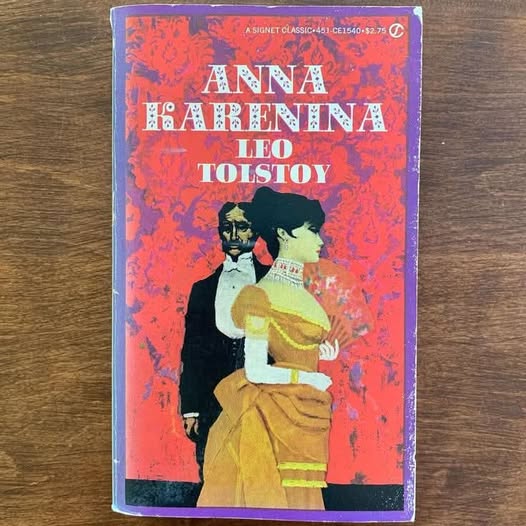Anna Karenina (1877) is Leo Tolstoy’s masterpiece, a sweeping exploration of love, society, and the human condition in 19th-century Russia. Considered one of the greatest novels ever written, it weaves together the tragic story of its titular heroine with profound philosophical meditations on life, morality, and happiness.
The novel opens with its famous first line: “All happy families are alike; each unhappy family is unhappy in its own way.” This sets the stage for its dual narratives—the adulterous passion of Anna Karenina and the spiritual quest of Konstantin Levin.
Anna, a beautiful and aristocratic St. Petersburg wife and mother, begins a scandalous affair with the dashing cavalry officer Count Vronsky. Their illicit love defies Russian high society’s strict moral codes, leading to Anna’s social ostracization, psychological unraveling, and ultimately her tragic fate. In contrast, Levin—a semi-autobiographical stand-in for Tolstoy—searches for meaning through work, faith, and his marriage to the virtuous Kitty Shcherbatskaya.
Tolstoy contrasts these two paths—Anna’s destructive passion and Levin’s redemptive struggle—to examine themes of desire versus duty, the hypocrisy of high society, and the search for authentic existence. The novel’s psychological depth, intricate character studies, and vivid depiction of Russian life (from aristocratic balls to peasant fieldwork) make it a towering achievement of realist fiction.
Notable adaptations include the 2012 film starring Keira Knightley and Joe Wright’s theatrical staging with innovative projection techniques. Tolstoy himself called Anna Karenina his first true novel, despite having already written War and Peace.


